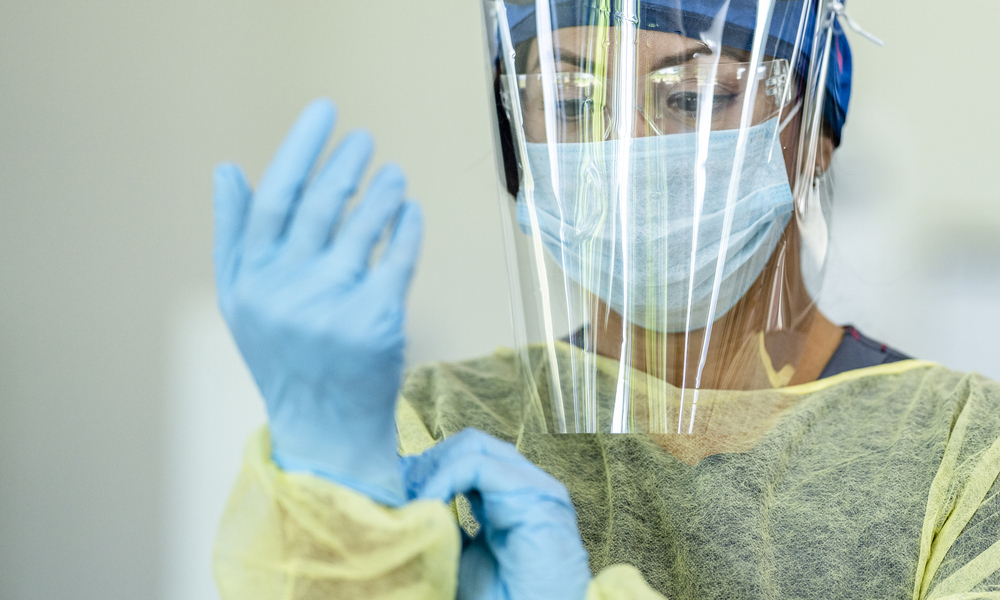
How One Association Made a Speedy Impact During COVID-19
The Association of Medical Device Reprocessors helped get PPE to hospitals as the pandemic intensified. Its next step is making the healthcare industry more sustainable.
A lot has been said about how strange the passage of time has felt in 2020. Days dragged; weeks flew by. For Dan J. Vukelich, CAE, the early months of the COVID-19 pandemic were “like doing a year’s worth of work in three months.”
Vukelich is president and CEO of the Association of Medical Device Reprocessors, a small trade association—seven members, four staffers—and one of those organizations that doesn’t get much attention in a typical year. In 2020, though, AMDR has been a prime example of the kind of work associations do well.
AMDR represents companies that focus on medical-equipment reuse, a prominent topic during COVID-19, as shortages of personal protective equipment made headlines in the United States. Reprocessing PPE is an environmentally friendly and cost-saving (and potentially life-saving) effort. According to one AMDR study, member companies reduced solid waste in hospitals by 7,100 tons and saved healthcare institutions more than $470 million.
But reprocessing is a complicated business, because much of that PPE isn’t designed or certified for multiple uses. The Food and Drug Administration places strict restrictions on reuse, which meant Vukelich was fielding a lot of calls during the early days of the pandemic.
It was our moral duty to step up.
“In early 2020, our hospital customers came to us and said, ‘There are all of these single-use respirators, face shields, surgical gowns, and intubation tubes that weren’t meant to be reused—can you reprocess them?’” he says. “These aren’t devices that we would ordinarily commercially reprocess. They’re not financially worthwhile, they raise a lot of safety questions, and they’re just not made durably enough. But desperate times require desperate measures.”
AMDR has two decades of experience working with the FDA on approval for reprocessing certain devices, which helped as the association and its member companies requested that the agency make an emergency authorization for certain PPE, delivering data to the agency to help it with its decisions. Early in the year, the FDA did make authorizations for certain devices, though it’s an effort that’s shifted over time—in June, for instance, the agency walked back its approval of reprocessing for some respirators, and it’s an effort that still causes some anxiety among healthcare workers.
Vukelich empathizes with the stress and says AMDR is committed to the effort only in the short term. “Those are devices that, when the pandemic is over or the crisis abates, we will no longer reprocess because we don’t think that that’s a product that would meet our safety standards ordinarily,” he says.
But however imperfect the solution might be, Vukelich says he’s grateful for the speed with which the association and its members have been able to work, given that time has been of the essence.
“To get clearance or approval, it’s typically a quarter-million-dollar or several-million-dollar investment per product,” he says. “And it will usually take months if not years. But all of that was short-circuited because the FDA needed immediate solutions.”
Those solutions, Vukelich says, haven’t been to the financial benefit of member companies. Because most states have restricted or banned elective surgeries during COVID-19, reprocessors are not as busy or profitable during the pandemic. To that end, AMDR’s 2021 plan is to make a louder call for the importance of recycling and reprocessing throughout the entire healthcare supply chain. Last week an article in the peer-reviewed healthcare policy journal Health Affairs made the case for that in terms of both environmental benefits and avoiding future shortages.
Vukelich is hopeful that, post-COVID, AMDR’s efforts will be profitable and sustainable. For now, it’s a matter of building goodwill.
“We’re the experts on medical device reprocessing, and it was our moral duty to step up,” he says. “And that’s why the members who had the expertise or the knowledge in these product areas or on the sterilization techniques stepped up.”
(FatCamera/E+/Getty Images Plus)






Comments